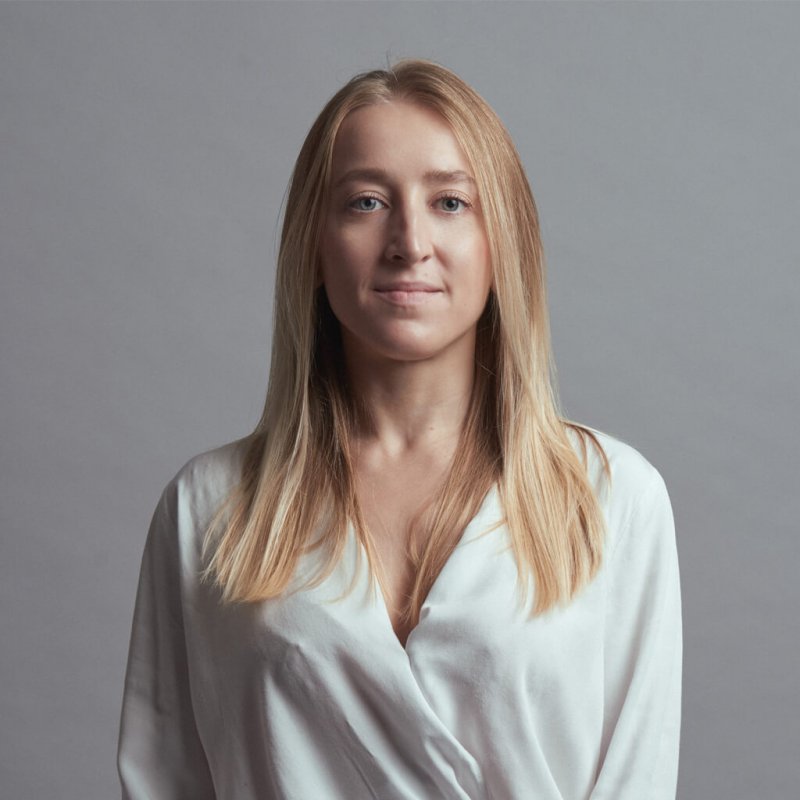What is generalized anxiety disorder (GAD)?

Publication date: 26-10-2022
Updated on: 28-04-2023
Topic: Mental health
Estimated reading time: 1 min
Article Author
Antonella QuarantaMedical Editor
Maria Cristina Cavallini
Editor and Translator
Viktoryia LuhakovaThe fear of not knowing how to best handle events and relationships in our lives generates what we call anxiety. Being anxious about particular individual events is normal. However, it becomes a psychological problem when anxiety becomes constant and persistent, fear related to interpersonal relationships, things, events of today and of the future.
"When the worries, the fear of something that each person experiences in his or her daily life are perceived as excessive to one's mental strengths, we can call it anxiety. When, however, this condition takes the form of constant alertness, it is possible that we are in the presence of a real disorder: Generalized Anxiety Disorder (GAD)," explains Dr. Maria Cristina Cavallini, a psychiatrist at IRCCS Ospedale San Raffaele-Turro and adjunct professor of Psychiatry and Clinical Psychology at the University Vita-Salute San Raffaele.
On a statistical level, anxiety represents a "torment" for more and more people suffering from it in the world: "Study ESEMeD shows that 11.1% of the population have at least one anxiety disorder during their lifetime and the prevalence of anxiety disorders now stands at 4%," Dr. Cavallini explains.
With the specialist, we understand what generalized anxiety disorder is and how to recognize it.
The 8 symptoms of GAD
"On some occasions, it is perfectly normal to feel anxious and experience an occasional feeling of anxiety: to experience mild fear and agitation before facing a school or university exam, a job interview, a medical examination, major life choices such as marriage or birth of a child, the decision to buy the first home, or other important choices that will affect one's future. But when the fear of any events heavily affects our lives and lasts for more than 6 months, it may be appropriate to seek specialist advice."
These are some symptoms that, if they appear repetitively and for prolonged periods, should alert you:
- Sleep disorders: insomnia, difficulty in getting to sleep, having disturbed sleep by nightmares, frequent awakenings, or, vice versa, there is a tendency to sleep more than one should (both during the day and than in the evening). There is irregularity in sleep-wake rhythm;
- Recurrent negative thoughts: recurrent and excessive worries about the future (brooding), inability to think about anything else, the mind always falls on the same themes/memories, especially in the evening;
- Fear and avoidance: there is a fear of not being able to cope with situations, of being overwhelmed by anxiety and having great difficulty coping with one's daily routine. Over time, one may witness the enactment of avoidance behaviors that lead to giving up a number of commitments or situations in which one might experience anxiety symptoms, such as going to work or school, attending events or accepting invitations (warning in advance that one will not go), going to appointments;
- Fatigue: there is a feeling of exceptional fatigue in performing daily acts, those habits that previously did not create any kind of discomfort now create it, one feels tired and unmotivated and makes no real effort;
- Agitation: one feels a state of constant alertness, as if at any moment one could be called upon to make important choices or called to action. One experiences, therefore, a sense of restlessness that may result in particular irritability;
- Feeling of being crushed by events: one feels impossibile to adapt to the current situation and would like to be able to manage the future (in the short-term), to be able to plan everything in advance with certain dates. Uncertainty about these missing data creates a disproportionate anxiety response (pathological anxiety) and, in some cases, Obsessive-Compulsive Disorder (OCD);
- Muscle tension: you feel stiffness or pain in certain parts of the body, for example, the base of the neck, shoulders, back, arms, legs, hands, etc.;
- Concentration difficulties and memory lapses: one has increasing difficulty in concentrating on a daily / routine activity (e.g., reading a book, writing a text, cooking, washing, etc.) and may experience memory lapses, i.e., the perception that some information is missing from the memory (most frequently short-term memory is involved, but it can also influence long-term memory).
Causes of generalized anxiety disorder
Among the most frequent situations capable of causing an occasional anxiety episode that can turn into DAG are expected and unexpected life events that can bring up an excessive behavioral and/or verbal reactions in a person with chronic anxiety. They include, for example:
- taking school exams;
- having a job interview;
- feeling of not being able to manage time;
- taking a trip;
- going out with new people;
- fear of not being able to experience a satisfying and lasting relationship;
- fear of not being able to live well with partner, parents, and children;
- fear of cognitive decline at old age or as a result of neurological disease (fears of the patient and his/her family members/caregivers);
- difficulties in relationship with work colleagues;
- fear of doctors and hospitals;
- experiencing performance anxiety in general.
How does psychiatric diagnosis take place?
"For DAG to be diagnosed, pervasive and uncontrollable anxiety must be experienced for at least 6 months, interfering with patient's functioning at various levels (work, social, school, family). In addition, at least 3 of the symptoms described above must be present.
It is necessary, then, to verify that the symptomatology related to the diagnosis of DAG is not caused by other concomitant psychiatric disorders, other medical conditions or by the intake of specific substances (e.g., psychotropic substances/drugs and alcohol, drugs for the treatment of other diseases that might have side effects on increased anxiety).
The psychiatrist makes the diagnosis of DAG by collecting clinical information on symptoms, their duration, frequency, and interference with the organism functioning.
It is possible to use self- or hetero-administered scales: a diagnostic questionnaire useful for collecting the history, that is, the body of information regarding the patient's medical history, as well as for assessing the patient's clinical progress over time and in relation to the proposed therapy", Dr. Cavallini points out.
Anxiety diary: how it works
A very useful tool for DAG diagnosing and setting up the most effective psychotherapy to resolve and prevent upcoming anxiety attacks is the "anxiety diary". The psychotherapist ask the patient to write down frequency and triggers of anxiety. A person is asked to describe in detail the situation and emotions experienced before having the single bout of agitation and irritability, as well as the duration of the uncomfortable feeling.
With the anxiety diary, you will get 2 results:
- you will be able to report to the psychologist how many and what events are experienced with anxiety in a day, in a week, in a month. At each session you will bring the updated diary and comment on it together;
- it will be very helpful in increasing the degree of awareness and consequently patient's self-esteem and sense of control and management of his/her own emotions related to the facts that create anxiety/agitation, with a preventive effect on the subsequent attack or containment of negative and out-of-control emotions.
How is generalized anxiety disorder treated at the San Raffaele Turro?
In the Center for Mood Disorders at the Ospedale San Raffaele Turro, a multidisciplinary approach is adopted to treat anxiety, with the joint intervention of the psychiatrist, psychologist and psychotherapist.
Psychiatrist recommends the most effective drug therapies in the management and treatment of mild or severe anxiety. The psychotherapist advises the anxious patient to undertake a specific course of psychotherapy that can relieve him/her of the sense of anxiety and can teach how to manage the anxious state and its effects.
In fact, constant dialogue with the professional through periodic psychotherapy sessions (in-person or online) makes it possible to:
- relieve anxiety-generated stress by freely exposing all thoughts that precede and follow the anxiety-provoking event;
- analyze the facts that create frustration and fears;
- finding strategies for managing and preventing further anxiety attacks and agitation.
This pathway is based on regular interviews (weekly, bi-weekly, monthly), which can be booked either by the National Health Service (SSN) with a simple request from the general practitioner who will dispense a prescription for "First psychiatric examination - Reason: (symptoms attributable to) anxious state, anxiety", or privately.